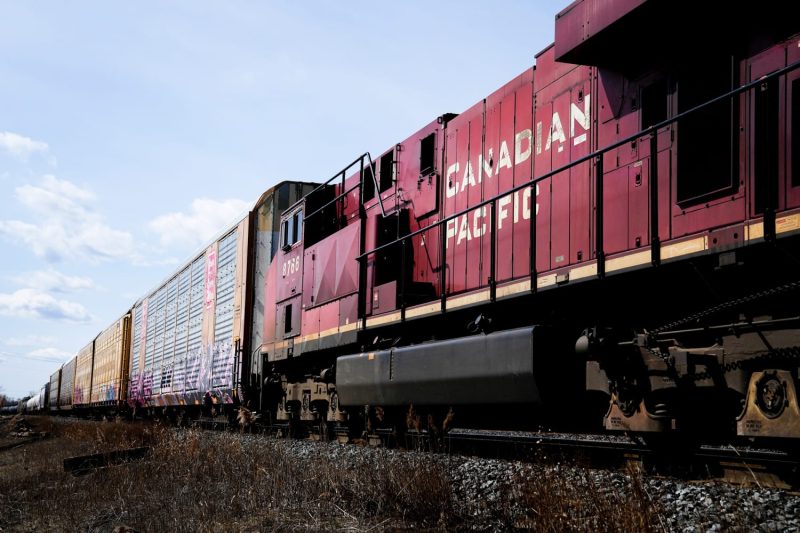The possible work stoppage at Canada’s two largest railroads, CN Rail and Canadian Pacific Railway, has raised concerns about potential disruptions to the U.S. supply chain. The impact of a work stoppage at these key transportation networks could have far-reaching consequences on businesses and consumers alike, both domestically and internationally.
The interconnectivity of the North American supply chain means that any disruption in Canada’s rail network could lead to widespread consequences across various industries. Both CN Rail and Canadian Pacific Railway play a crucial role in transporting goods between Canada and the United States, with goods ranging from agricultural products to manufactured goods being transported via these railroads.
One of the major concerns associated with a work stoppage at these railroads is the impact on the flow of goods moving across the border. The U.S. relies heavily on imports from Canada, with goods such as energy products, automotive parts, and consumer goods regularly crossing the border via rail. Any disruption in the transportation of these goods could lead to shortages, price increases, and delays in delivery for American businesses and consumers.
In addition to the impact on cross-border trade, a work stoppage at CN Rail and Canadian Pacific Railway could also disrupt the transportation of goods within Canada. Many businesses in Canada rely on these railroads to transport raw materials, parts, and finished products to various regions within the country. Any disruption in rail transportation could lead to supply chain delays, increased costs, and operational challenges for Canadian businesses.
Furthermore, the potential work stoppage comes at a time when businesses are already facing challenges due to the ongoing global supply chain disruptions caused by the COVID-19 pandemic. The uncertainty surrounding the situation at CN Rail and Canadian Pacific Railway adds another layer of complexity for businesses as they navigate the changing supply chain dynamics.
It is crucial for businesses to proactively assess their supply chain vulnerabilities and develop contingency plans to mitigate the potential impact of a work stoppage at Canada’s two largest railroads. This may involve exploring alternative transportation options, increasing inventory levels, or diversifying sourcing strategies to ensure business continuity in the event of disruptions.
Government agencies, industry associations, and businesses must work together to monitor the situation closely and coordinate efforts to minimize the impact of any potential work stoppage. Collaborative efforts in communication, planning, and risk mitigation can help to ensure the continued flow of goods and maintain the resilience of the North American supply chain in the face of challenges.
In conclusion, the possible work stoppage at CN Rail and Canadian Pacific Railway highlights the interconnected nature of the North American supply chain and the importance of proactive risk management in ensuring business continuity. By anticipating potential disruptions and implementing robust contingency measures, businesses can navigate uncertainties and maintain the flow of goods even in challenging times.






























